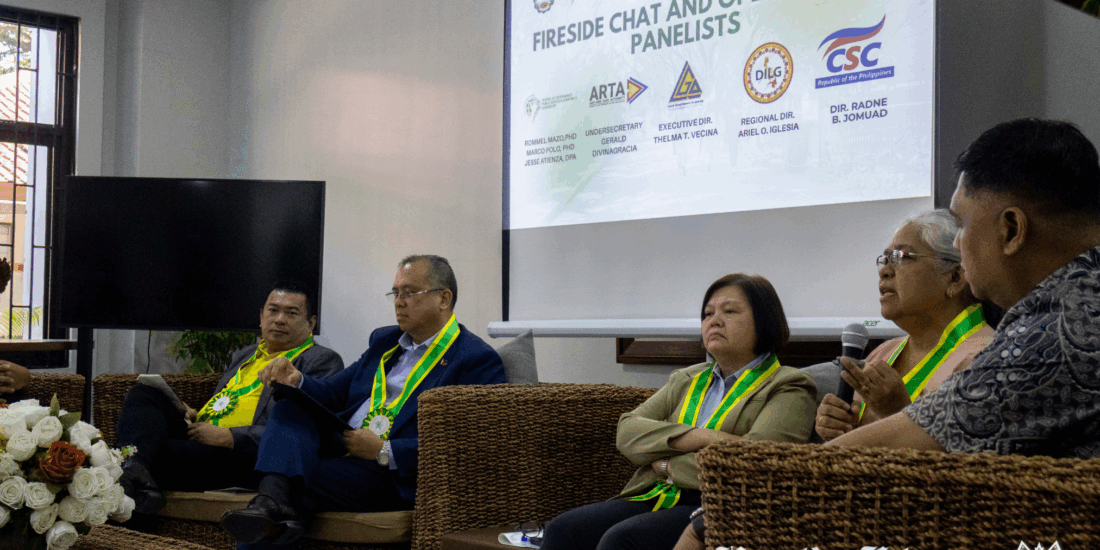COVID-19 remodels academic setting anew
Originally published in The HERALDO FILIPINO Broadsheet Vol. 34 Double Issue
On March 10, suspension of classes was extended due to the COVID-19 outbreak leading to the University’s implementation of distance learning mode for the rest of the 2nd semester of the academic year (AY) 2019-2020, as stated on the March 11 memorandum, where “a fully online mode shall be practiced.”
Campus entry was halted for safety precautions as enforced by the government to curb the spread of the coronavirus disease 2019 (COVID-19). Consequently, strict quarantine measures hindered the continuation of traditional, face-to-face learning.
Many academic institutions have taken it upon themselves to deal with the remaining days of their academic years (AY) before ending the final term, as encouraged by the Commission on Higher Education (CHED).
On the other hand, The Department of Education (DepEd) proposed the use of television (TV) or radio broadcasting mode next incoming AY for those without internet as their statistics confirmed that most Filipino families have TVs and radios at home. For those who have no such devices, printed modules will be delivered to them.
Student demands and administration response
Universities such as Ateneo De Manila University (ADMU) implemented the promotion en masse and automatic passing marks earlier in April, while some universities like the University of the Philippines (UP) opted for an alternative mode of grading to end the semester. However, DepEd disagreed with the proposition of mass promotion for there is no existing policy for it, said Education Secretary Leonor Briones.
In response to DepEd’s decision to continue the AY, mass organization National Union of Students of the Philippines (NUSP) expressed their concerns and released the “5 Student Demands” on the issue of online learning last March. Some student leaders also took it to social media to organize online protests, asking for compassion and empathy for the students and teachers alike.
#SuspendOnlineClasses, #WalangIwanan, #NoStudentLeftBehind, and other related hashtags were made trending by students from different schools and universities to elevate their voices.
Calls for online class suspension
On March 18, Coalition of Concerned Lasallians (CCL) released a statement to suspend online classes due to problems students have such as unstable internet connection, unreliable mobile data, and lack of devices.
The statement also called to “ask the institution to be considerate to students who do not have the means to be able to complete their assessments, some students do not even have proper devices that can help them to join video conferences and online classes.”
Additionally, College of Liberal Arts and Communications Student Government (CLACSG) appealed against the resumption of online classes through stating different student concerns as posted on their statement addressed to VCAR on March 25.
Instead of continuing the online classes, CLACSG called for makeup classes “that are appropriate to the tuition and miscellaneous dees the that students paid for.”
Furthermore, La Salle college student publications made a joint statement on the conduct of academic directives about online classes, which was posted on April 19.
Lavoxa Group of Publications, Heraldo Filipino, Ang Pahayagang Plaridel, Malate Literary Folio, Benildean Press Corps, Benildean Yearbook Office, and The Spectrum writes that, “the dedication in building educational communities that demonstrate commitment to young people, especially those who are poor, for inclusivity will only be realized once we ensure that no student is left behind.”
On April 21, different La Salle student governments and organizations echoed the call for online class suspension along with ending the term and mass promotion.
As mobilized by One La Salle for Human Rights and Democracy (OLSFHRD), student bodies from University of Saint La Salle (USLS), De La Salle – College of Saint Benilde (DLS-CSB), De La Salle Lipa (DLSL), De La Salle Araneta University (DLSUA), DLSU-D, and De La Salle – Manila (DLSU-M) appealed to the entire Lasallian community in listening to the pleas of fellow citizens affected by the pandemic outbreak.
On May 5, the University Student Government (USG) High Court also issued a statement on the suspension of online classes and mass promotion, which addressed the review of academic directives issued by the Office of Vice Chancellor for Academics and Research (OVCAR).
Despite the calls for suspending online classes, the OVCAR pushed through using updated academic directives thought to address student concerns such as the inclusion of non-credit (NC) grade, as mentioned on the April 7 and April 30 memorandum.
However, for the incoming AY, OVCAR is introducing a new academic framework following a care-centered model as stated in their June 1 memo. It will include self-care along with the other official activities, as a gesture of prioritizing well-being.
The pacing will also cater more inclusive time allotment, with modalities ranging from online to module-based learning, depending on the student’s available resources. Meanwhile, onsite classes will be coordinated and optional.




